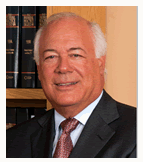Sometimes, when you find yourself pulled over by a police officer in a routine traffic stop, the officer may request permission to let him or her search your car. The fourth amendment states that police cannot search your vehicle without your permission, unless they have probable cause to believe that you have committed a crime. If they don’t have that probable cause, then you still have power within the situation, and here’s how you should handle it.
Most importantly, make sure that you are not giving the officer any reason for probable cause. Make sure you have your license, registration, and proof of insurance on you, and present them to the officer. Remain polite, and follow their instructions, as this will go a long way towards making the experience go more smoothly. However, if the officer starts asking you questions, remember that you are not obligated to answer them. You shouldn’t lie to them, but you also always have the option of declining to answer — you will not end up in jail, prison, or on house arrest for refusing to answer a police officer’s questions.
Always remember your rights, and don’t let the police treat you unfairly. Be safe and smart out there!
Know Your Rights
Oftentimes, people give the police their consent because they assume that the officer will proceed with their search regardless. This is not the case, as unless they can have actual evidence of a crime in progress or having taken place, they are legally forbid from going forward without permission. In these situations, it’s important to remember that you have rights. Do not let the fear of ending up in jail, prison, or house arrest cause you to make a costly mistake.Most importantly, make sure that you are not giving the officer any reason for probable cause. Make sure you have your license, registration, and proof of insurance on you, and present them to the officer. Remain polite, and follow their instructions, as this will go a long way towards making the experience go more smoothly. However, if the officer starts asking you questions, remember that you are not obligated to answer them. You shouldn’t lie to them, but you also always have the option of declining to answer — you will not end up in jail, prison, or on house arrest for refusing to answer a police officer’s questions.
Just Say “No”
Ultimately, though, all you really have to do when the police ask for your consent to search your car, is simply say “no”. There’s always the chance that a rogue officer will decide to break the law and search the vehicle anyway, and in that case, you should let them do it. If they search without your permission, you will always have the option of taking legal action against them after the fact. Most of the time, though, once their request is denied, they will realize that the affair is not worth more of their time. In this case, retrieve your documentation, and leave the scene as quickly as possible. If the officer tries to get you to remain at the stop, ask them whether or not you’re under arrest or being detained — if the answer is “no”, then they are required by law to let you depart.Always remember your rights, and don’t let the police treat you unfairly. Be safe and smart out there!

Roy J. Kahn, with years of legal experience in a wide variety of criminal law, heads a “boutique” firm, which means that your attorney is Roy J. Kahn, not a paralegal. If you have been charged or are about to be charged with a crime—or if you have been contacted to be a witness in a federal grand jury case, you need a qualified defense. You should consult with an attorney immediately and know that you have a right to make no statement until you have consulted with an attorney To contact Mr. Kahn, he can be reached at 305-358-7400.


Recent Comments